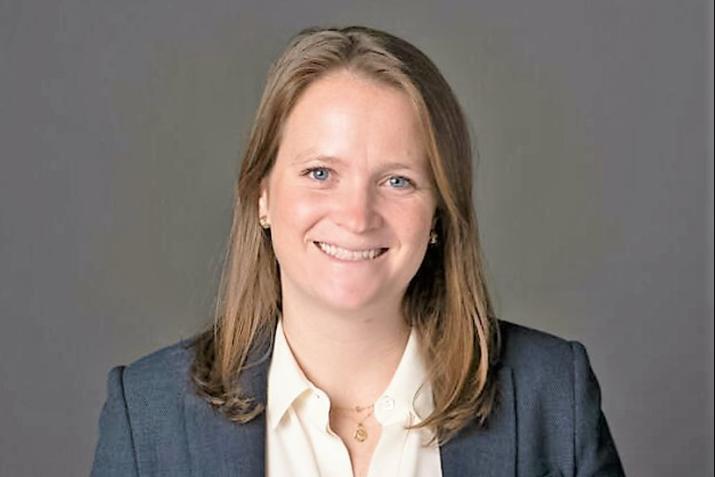
Among the first students to pursue global health at Duke, Christine McKenna ’08 keeps exploring the interdisciplinary nature of her field.
Published August 13, 2019, last updated on June 3, 2020 under Alumni Stories
By Brianna Rochelle
When Christine McKenna ’08 was an undergraduate student, she read Tracy Kidder’s seminal book Mountains Beyond Mountains as part of the Duke Common Experience. Kidder’s biography of Paul Farmer, a global health pioneer and Duke alum, resonated deeply with McKenna, who began to engage with fundamental questions about equity and health.
At the time, Duke was launching its first global health certificate. Inspired by Farmer’s human rights-based approach to healthcare, McKenna decided to pursue the new pathway, taking global health courses while pursuing a major in public policy studies and a minor in history.
“The combination allowed me to apply tangible solutions to problems, all with a global health lens,” she recalls.
During her senior year, McKenna took the first-ever global health capstone course, taught by founding Duke Global Health Institute director Michael Merson. “Mike was such an amazing force in the global health field, and the time we got with him was really unprecedented,” she remembers. “We learned so much from hearing his stories about his work on HIV and other issues throughout his career, and he really gave us a lot of time for mentoring. It was really a transformative experience.”
After graduating in 2008, McKenna worked with Global Health Strategies, a consulting company that helps a range of clients in the global health field advance their work. While there, she worked with GlaxoSmithKline (GSK) on communications and advocacy around its malaria vaccine candidate RTS,S, which was approved for use earlier this year.
Her time with Global Health Strategies enabled her to see firsthand the power of innovation and technology, as well as the role the private sector plays in healthcare. After earning her master’s in public health at Johns Hopkins, McKenna transitioned to Pfizer, one of the largest pharmaceutical companies in the world. There, she is on the global health partnerships team, which is responsible for ensuring sustainable access to Pfizer medicines and vaccines for vulnerable populations. Her work focuses on underdeveloped countries in Africa, Asia and Latin America, and it helps her pursue her passion: finding ways to ensure that every individual has access to high quality healthcare, regardless of where they are born.
In addition to her work at Pfizer, McKenna has served on DGHI’s board of advisors since its inception in 2010, initially as a young alumni representative. “I’ve learned about how universities approach global health,” she says. “It’s been really interesting to see DGHI chart its course and figure out what core competencies they wanted to focus on in global health and where they wanted to make their impact, and similarly, what areas Duke was best positioned to focus on.”
McKenna has also enjoyed seeing how DGHI has leveraged expertise and resources from across the university to realize its goal of being an interdisciplinary institute.
The value of this interdisciplinary focus is not lost on McKenna. “At Duke, I gained a deep appreciation for the interdisciplinary nature of global health,” she says. “Global health is not just a medical problem, it’s not just a sociology problem, it’s not just a policy problem—they’re all different aspects that need to come together to address disparities in health, and I think that training was really fundamental to me in my next roles.”
McKenna jokes that she’s jealous of current Duke global health students, since opportunities—both in and outside the classroom—have grown exponentially since her time on campus. “If you’re a student at Duke and you’re interested in studying global health, there’s so much available to you to make that happen, and I think that’s been an amazing change,” she says.
But it’s not just global health students who can benefit from the field’s broad reach and implications, McKenna says. “Even if you don’t think you want to do global health as your career, it’s such important training to give you an understanding that the world you’re seeing on Duke’s campus is not the way the world looks outside the walls of Duke,” she says. “Do yourself a favor and get some exposure to how healthcare and health experiences look around the world. I think it really is transformative.”


